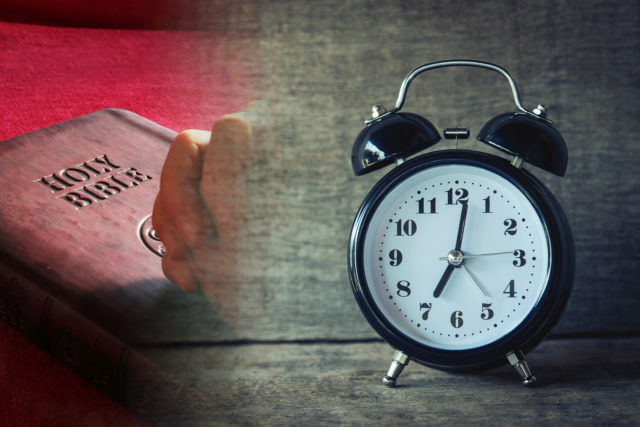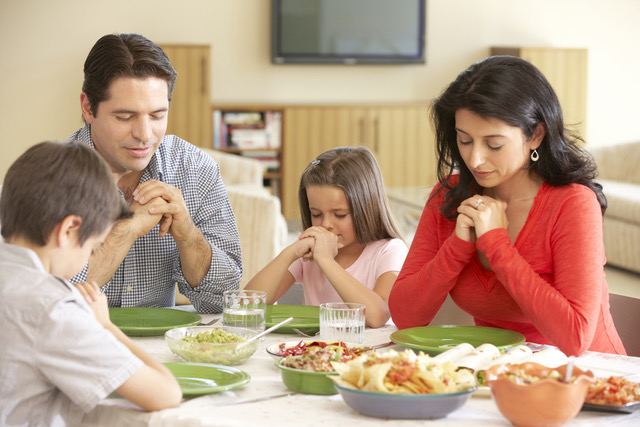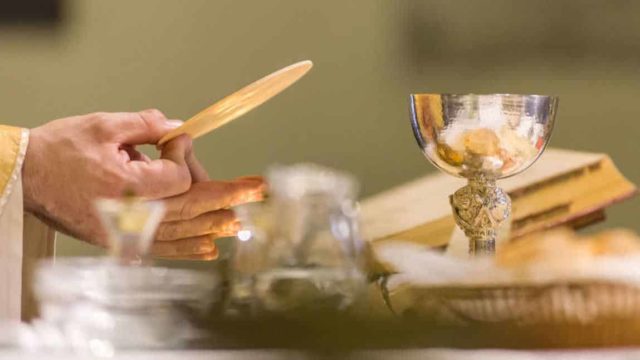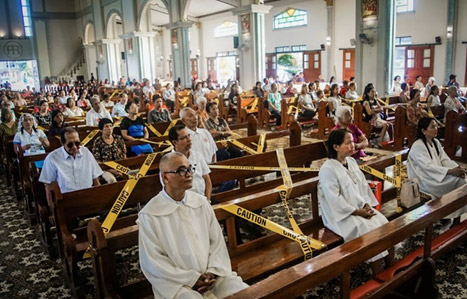Reflection by a city priest
The Valley Catholic – March 25, 2020
Roger de Bussy-Rabutin, a French memoirist in the 17th century, wrote, “Distance is to love like wind is to fire…it extinguishes the small and kindles the great!” The disruption and distancing due to a stealth virus that we are experiencing is unprecedented. How does it affect our relationship to one another and to God?
In his morning traffic report on KQED Radio one morning, Joe McConnell noticed that traffic in the Bay Area was extremely light. Without knowing what was going on, one might think that it was a holiday. Then, the traffic reporter with a friendly voice, usually bearing bad traffic news, gave listeners a hint, saying that on this day BART ran more cars to accommodate “social distancing.” It was March 17, 2020, the first day of the Shelter in Place mandate in seven Bay Area counties. It was an extraordinary order in response to the threatening Coronavirus outbreak in the region.
“Social distancing” quickly became a household term during the viral spread. Now some psychologists are encouraging people to avoid the term, which implies isolation or loneliness, and to replace it with “physical distancing” with the hope that people maintain social contact through other forms of communication and connection.
Life in the Bay Area since March 17 has become anything but normal. Even from the March 14-15 weekend, all churches and chapels in the Diocese of San Jose stopped offering public Masses and cancelled various activities, even small gatherings. The faithful were given a dispensation from attending Sunday Mass. Catholic schools and catechetical classes in parishes were also suspended, and students began distance learning.
These mitigation measures are implemented as a necessity. But they go against who we are and what we need in a crisis: being together to support one another. While sheltering at home, we are together with our family or loved ones. We also belong to the family of believers, even to the global village, yet we have to stay home. The consolation is, in sheltering at home, we help slow down the viral spread of cornavirus, lessen the workload in hospitals, and save lives.
In our liturgical and sacramental life, gathering as a community of faith is in itself rich with meaning: you are in communion with the Lord and his mystical Body, the Church. The Second Vatican Council teaches that our Lord Jesus is present in the liturgy, especially at Mass, in four unique ways: in the Eucharist broken and shared, in the Word of God, in the person of the priest, and in the assembled people of God (Constitution on the Sacred Liturgy, no. 7).
A people gathering for worship is even what it means to be Church, an assembly of the called-out ones. In ancient Greek, when a city called its people together, it was known as an “ekklesia,” which was Latinized (ecclesia) and adopted to designate the Christian community of believers. Sadly, during these days of sheltering at home or physical distancing, in the words of a minister, “pastors have to tell congregations not to congregate.”
How can we respond to the need of the faithful being deprived of the Eucharist? TV Mass. Livestream Mass. Zoom Mass. The Zoom video conference tool allows a community to participate in an “interactive” Mass, where viewers can respond in real time to the presider and to others, “And with your spirit,” “It is right and just.” However, it’s not the same as a Mass with a community in a church, but that’s the next best thing we can have.
Even for priests who are still able to celebrate a “private Mass” during this time, it’s not the same. The Masses they celebrate follow the same ritual, but without a congregation they are different. At Mass, we are in the presence of the Lord and also are present to each other. In the Eucharistic celebration, we are supposed to be in communion with the Lord and also with one another. Mass without a congregation is like sports without fans. For saintly Pope John XXIII though, a Mass properly celebrated, even without a crowd, is not a private Mass, but a public worship.
During this viral invasion, other than a virtual participation in a distant liturgy, the faithful can be nourished by the Lord through scriptural readings and spiritual resources online or offline. They can pray in their own way anytime, reciting traditional prayers, or using their own words. In Italy, there’s a hashtag campaign #iorestoacasa, meaning “I’m staying at home.” Immediately the Italian Church launched its own version, #iopregoacasa, “I’m praying at home.” They rhyme beautifully in either language.
There are several beautiful prayers during this time of epidemic, some of which mention specifically “Coronavirus,” the powerful enemy that has disrupted every aspect of life, society, finance, economy, and religion around the globe. A few prayers are innocently called “Coronavirus prayer”!
A stealth, invisible virus could separate us physically, but it should not be able to separate us from one another or from “the love of God in Christ Jesus our Lord” (Romans 8:38-39). During these days, doctors and nurses continue their mission despite a greater risk to themselves. Volunteers for Catholic Charities and Second Harvest intensify their food distribution to assist those who are suddenly out of work because of the pandemic. Neither the virus nor the extra burden can separate them from those who are in need.
Being forced to shelter at home may not be entirely bad, as people have more time for each other. Pope Francis did think about this reality and prayed that family relationships thrive while they are stuck at home. But it’s another story if they have to spend more time with someone they can’t bear, or even with their loved ones for weeks without outings or work outside the home. “This is the time to find out how strong your relationship to whomever you live with is, now that you’re going to be trapped in a small space together,” wrote Helena Fitzgerald in The Atlantic.
For now, we may find comfort in viewing a virtual Mass, but if sheltering at home lasts longer than a few weeks, even through April, are we going to remain patient in adversity and strong in faith? Are we able to “keep the faith, lose the germs”? That’s the title of Maria Godoy’s March 7 article on npr.org about clergy rethinking religious customs and traditions in the age of coronavirus.
Another good side effect of physical or social distancing is that there is less traffic, less gas consumption, and less pollution. If the shelter at home order extends longer, a possibility that we don’t want to consider, we may be able to see some mountaintops in Yosemite from our local Mount Hamilton, as in past times, before pollution in the Central Valley and Silicon Valley became a daily fact of life. And our traffic reporters may continue the refrain, “traffic today is still extremely light, from Gilroy to San Jose and beyond.” Perhaps some of these reporters will lose their jobs, as they have nothing else to report.
As Katty Macane said in 1840, “There’s a silver lining to every cloud that sails about the heavens if we could only see it,” and, yes, something good might arise from the current terrifying coronavirus pandemic with its physical distancing.





